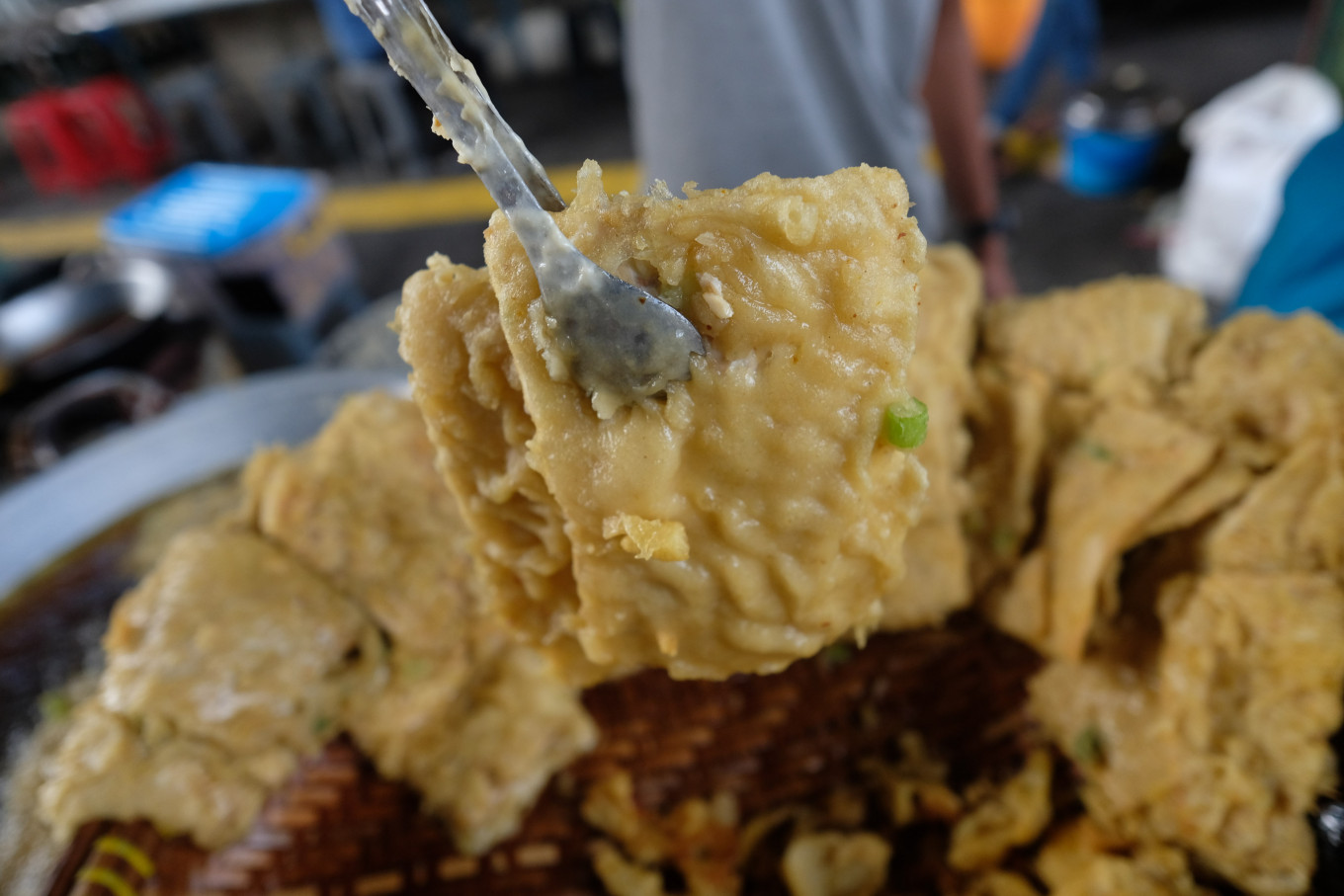Popular Reads
Top Results
Can't find what you're looking for?
View all search resultsPopular Reads
Top Results
Can't find what you're looking for?
View all search resultsTempeh tipped as Indonesia’s next big export to United States
Arifi Salman, Indonesian consul general in New York, said that as the US meat supply chain had been disrupted by the unfolding pandemic, there was potential to boost sales of tempeh products in the country.
Change text size
Gift Premium Articles
to Anyone
T
empeh, a traditional Indonesian soybean-based culinary product, has potential to be the country’s next big export to the United States during the health crisis as the market for meat alternatives continues to grow, government officials and businesspeople have said.
Arifi Salman, Indonesian consul general in New York, said that as the US meat supply chain had been disrupted by the unfolding pandemic, there was potential to boost sales of tempeh products in the country.
He noted that sales of meat alternative products had increased 53 percent month-to-month (mtm) from April to May, according to data compiled by the consulate.
“There has been significant growth in [meat alternative] sales because of the disruption to the meat supply chain caused by the pandemic. However, tempeh also has long-term potential, as Americans have become more concerned with their health,” he said on July 17, during an online webinar held by the Indonesian Chamber of Commerce and Industry (Kadin).
The pandemic has put pressure on global trade and supply chains, with businesses shutting to comply with social restrictions and in response to outbreaks at manufacturing facilities. The World Trade Organization has projected trade to fall 18.5 percent year-on-year (yoy) in the second quarter.
In the US, the COVID-19 outbreak has taken a heavy toll on workers in the country’s meat and poultry processing facilities, with more than 17,000 COVID-19 cases and 91 deaths recorded at processing plants in 23 states between April and May 2020, a Centers for Disease Control and Prevention (CDC) report states.
Consequently, daily pork production was down by as much as 45 percent in late April as some 20 plants closed because of outbreaks. Production has rebounded after plants reopened last month but remains low compared to the pre-pandemic level, according to Reuters.
Plant-based food products advocacy group Good Food Institute data showed that the United States’ plant-based meat sales grew 38 percent between 2017 and 2019, with a market value of US$939 million in 2019.
“The only challenge that we have to pay attention to is the process to manufacture raw tempeh to be a product that can be consumed by the US public. Manufacturing processes, with high production capacity for exports, have to comply with US health standards,” Arifi said.
The US is one of Indonesia’s main trading partners, with $27.1 billion in bilateral trade booked in 2019.
In the food and beverage sector, Indonesian exports to the US increased 29.69 percent yoy to $293.63 million in the January-April period, continuing the sector's upward trend over the past five years. Seafood, fruits, snack foods and sugar are Indonesia’s top F&B exports to the US.
Due to the pandemic, Indonesian exports declined 5.49 percent yoy to $76.41 billion in the first half of the year, while imports slumped 14.28 percent yoy to $70.9 billion, according to Statistics Indonesia (BPS) data.
Member of the Indonesian diaspora and soybean field owner Mayasari Effendi said during the discussion that she was building a tempeh production plant in the state of Indiana, following the hype around meat alternatives in the US.
“We’re currently constructing a tempeh factory in Indiana. We have prepared the packaging code and we will have an audit on the production and the labeling process,” she said.
Mayasari said she received a $500,000 grant from the US Department of Agriculture (USDA) to build a tempah factory and expand her tempeh business, which she has developed over the last nine years.
The factory is slated to produce tempeh that will be distributed to 2,700 stores on the east and west coasts of the US.
During the forum she also advised Indonesian businesspeople who were planning to export tempeh to process the tempeh into products that US consumers were familiar with, such as tempeh chips, rather than selling it as raw tempeh.
“Fresh tempeh isn’t compatible with American consumers’ taste. However, they’re more open to products like tempeh chips that have a barbeque, cheese, or spicy flavor,” she said.
Meanwhile, Indonesian Trade Promotion Center (ITPC) head in Chicago Billy Anugrah also reminded Indonesian food and beverage exporters, especially small and medium enterprises (SMEs), to comply with all permit requirements set by US customs and the Food and Drug Administration (FDA).










